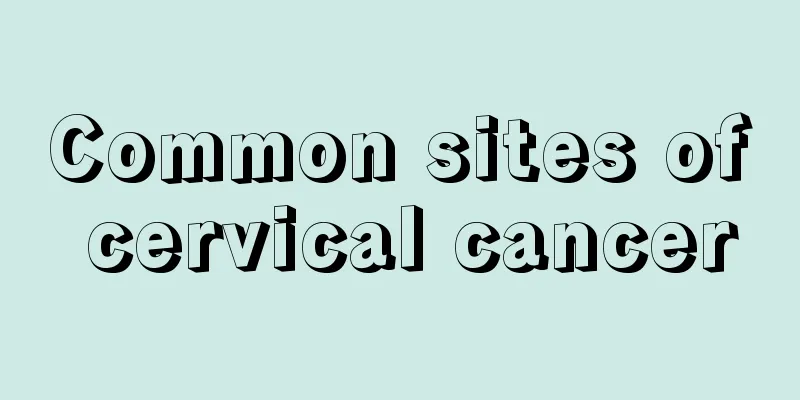You must know that these 9 types of women are most likely to suffer from uterine cancer

|
Although modern medicine has not been able to fully explain the pathology of endometrial cancer, experts have concluded, based on statistics and analysis of patient and epidemiological data, that women with the following nine body types are most likely to develop endometrial cancer. Let's see if you are one of them. 1. Infertility The high risk factors for endometrial cancer decrease with the increase in the number of births. Women who suffer from infertility due to long-term anovulation are more likely to suffer from this disease than women who have given birth to one child. Patients with polycystic ovary syndrome are also prone to this disease for the same reason.
Obesity is a manifestation of endocrine imbalance. A large amount of fat in the body increases the storage of estrogen. Fat also promotes the catabolic action of androgens, increases the estrogen content in the blood, and leads to endometrial hyperplasia and even cancer.
In the period before menopause, the woman is often in an anovulatory state, and the endometrium undergoes proliferative changes after being stimulated for a long time by a single estrogen without progesterone opposition.
People who consume too much fat have an increased relative risk of endometrial cancer, while vegetables and fruits have a protective effect, reducing the relative risk. Fat has the function of storing estrogen, which will cause the endometrium to proliferate and even turn into cancer.
Some patients with diabetes, hypertension, etc. may develop polycystic ovary syndrome, atypical endometrial hyperplasia, and excessive estrogen levels in the body due to long-term pituitary abnormalities, which is also a cause of cancer.
The use of exogenous estrogen alone without progestin antagonism may increase the risk of endometrial cancer, which is related to the dose and duration of estrogen use. If progestin is added to antagonize, the risk can be reduced.
Especially after menopause, uterine bleeding should be considered as a possibility of endometrial cancer, and a gynecological examination should be conducted as soon as possible to facilitate early detection and treatment.
Compared with the poorer people, the risk of endometrial cancer is twice as high, which may be related to excessive fat intake and less physical activity.
Due to the influence of genetic factors, patients with endometrial cancer often have a family history or a history of cancer in close relatives. Therefore, those with a family history of endometrial cancer and a history of cancer in close relatives have an increased risk of the disease. |
<<: 6 simple moves to make your pelvis healthier
>>: 5 ways to prevent endometritis
Recommend
Is arrhythmia dangerous? What are the dangers of sinus arrhythmia on electrocardiogram?
There is an item called heart rate check in the p...
Cervical laser surgery
Cervical laser surgery is a common physical thera...
Will it be painful after the abortion anesthetic wears off?
Unexpected pregnancy is a very common phenomenon ...
What should I do if the wiper makes an unusual noise and does not wipe cleanly? How to solve the problem of wiper skipping?
Cars are consumables, and windshield wipers are o...
How long will the contractions last?
Pregnancy is the most important period in a woman...
Double "new evidence" support! Good news for melanoma patients!
At the just-concluded 2024 European Society for M...
What causes abdominal pain in women?
What causes stomach pain? Sometimes you suddenly ...
What should women do if they have two periods in one month?
I believe that female friends always feel uncomfo...
53 years old, had ovaries and uterus removed
When a woman's uterus matures, she will have ...
Is it safe to have sex on the third day after your period?
Many people do not want to have children but feel...
What happens if you don't get enough rest after abortion?
There are many ways to perform abortion. The most...
Can I have an abortion if I suffer from premature ventricular beats?
Abortion, killing one's own unborn child in a...
How to avoid the "reefs" on the health route
Author: Zheng Yuan, Shanxi Bethune Hospital Revie...
How to calculate the time of pregnancy
We often hear people discussing the size of the b...









